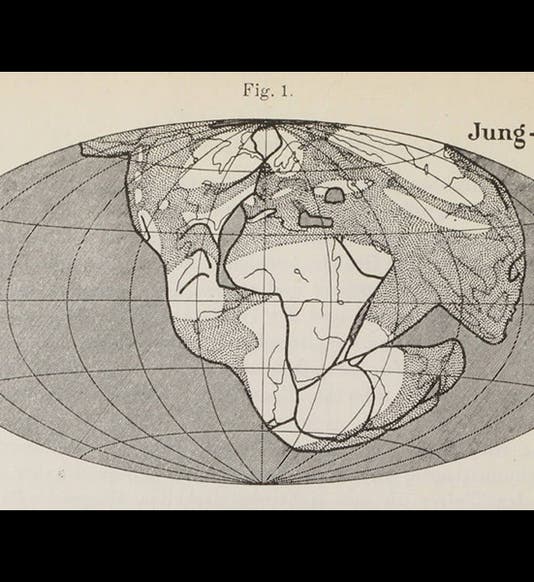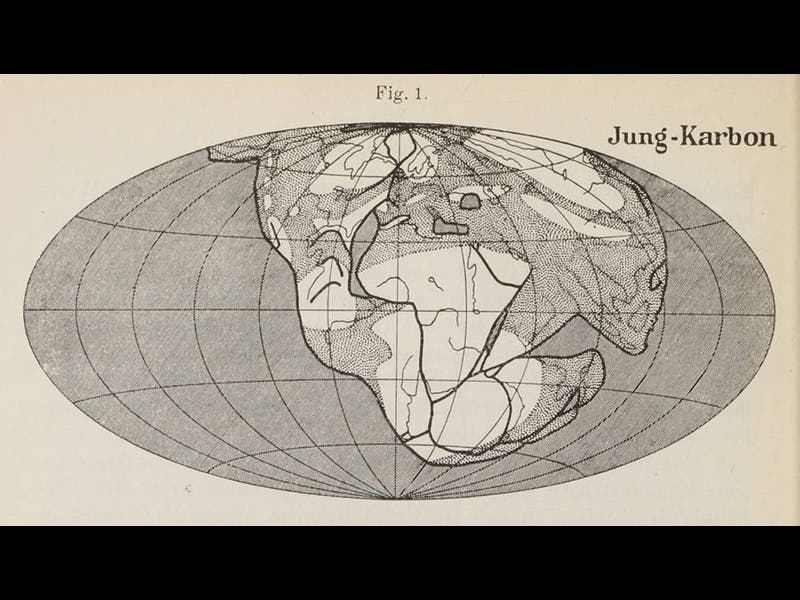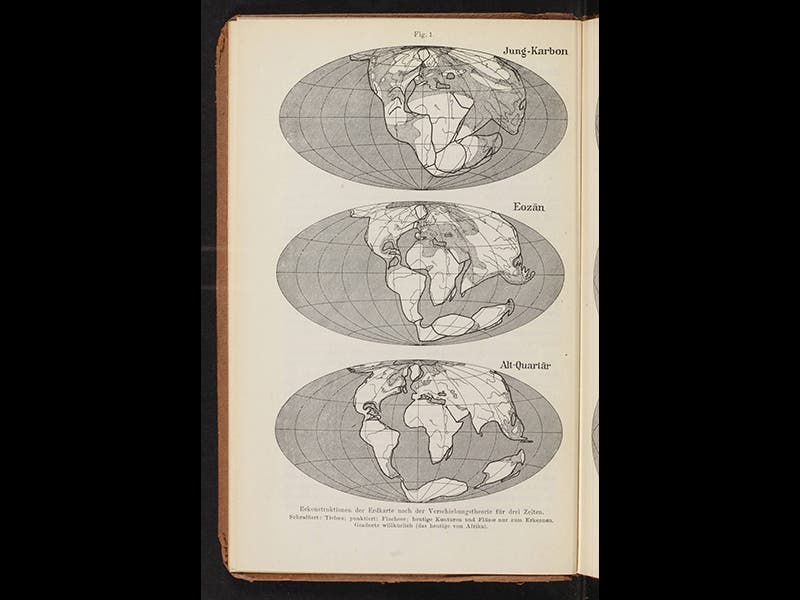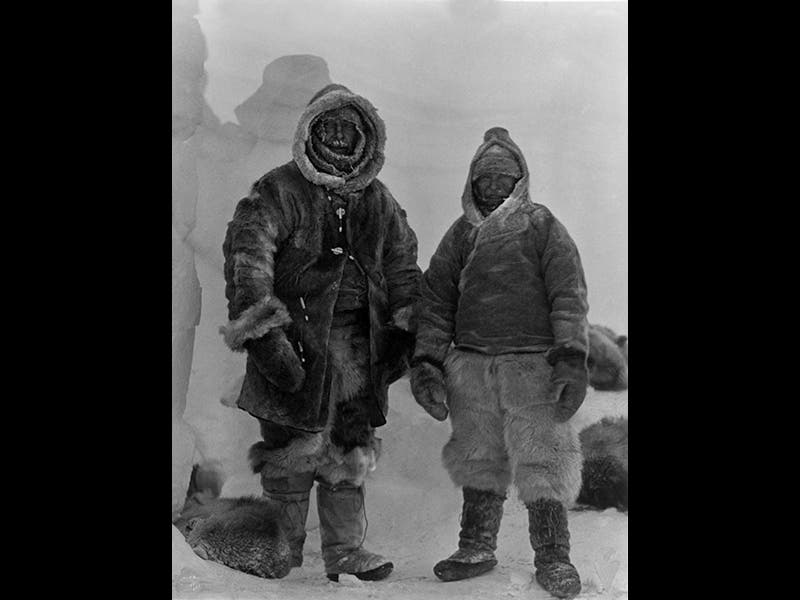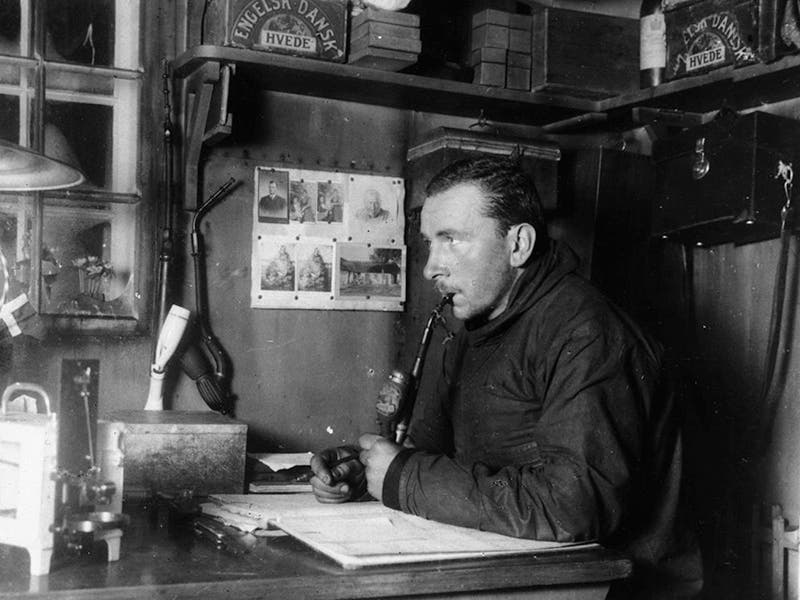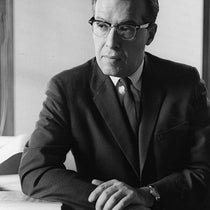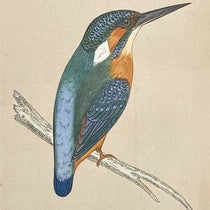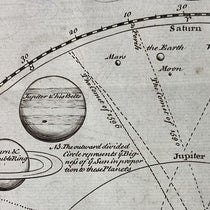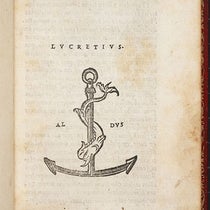Scientist of the Day - Alfred Wegener
Alfred Wegener, a German meteorologist, was born Nov. 1, 1880. In 1912, Wegener published several papers in which he postulated that the earth's continents, 200 million years ago, were amassed in a super-continent that he called Pangaea (first image). He proposed that Pangaea then broke up and the continents drifted apart, in the process raising mountain chains along their leading edges (second image). Continental drift, he thought, would explain why South Africa, South America, Australia, and Antarctica once shared the same glacial terrain, and indeed hosted similar animals and plants. Wegener soon fleshed out his proposal in a book, Die Entstehung der Kontinente und Ozeane (The Origin of Continents and Oceans, 1915), which was republished in 1920 and 1922.
Continental drift began to attract attention in England and the U.S. when an English translation appeared in 1924. In 1926, a symposium was held, sponsored by the American Association of Petroleum Geologists, in which continental drift was discussed and debated, and generally denounced. Four years later, on this day in 1930, Wegener had a 50th-birthday picture taken (third image) and then departed from a camp in central Greenland for the coast. He was never seen alive again. Perhaps it was just as well. Even had he lived to be 80, Wegener would still have found his idea of continental drift almost universally rejected, and that would surely have been depressing. Had he lived to be 90, however, he would have found himself quite a hero, the patron saint of plate tectonics.
We have Wegener's seminal papers, the first three German editions of his book, the English translation of 1924, and the proceedings of the 1926 Symposium, in our History of Science Collections. The plate showing Pangaea and its breakup (first and second images), was taken from the 1922 edition, which for some reason we have digitized. The fourth image shows him in 1912, at the age of 32, taken on a previous expedition to Greenland.
Dr. William B. Ashworth, Jr., Consultant for the History of Science, Linda Hall Library and Associate Professor, Department of History, University of Missouri-Kansas City. Comments or corrections are welcome; please direct to ashworthw@umkc.edu.

